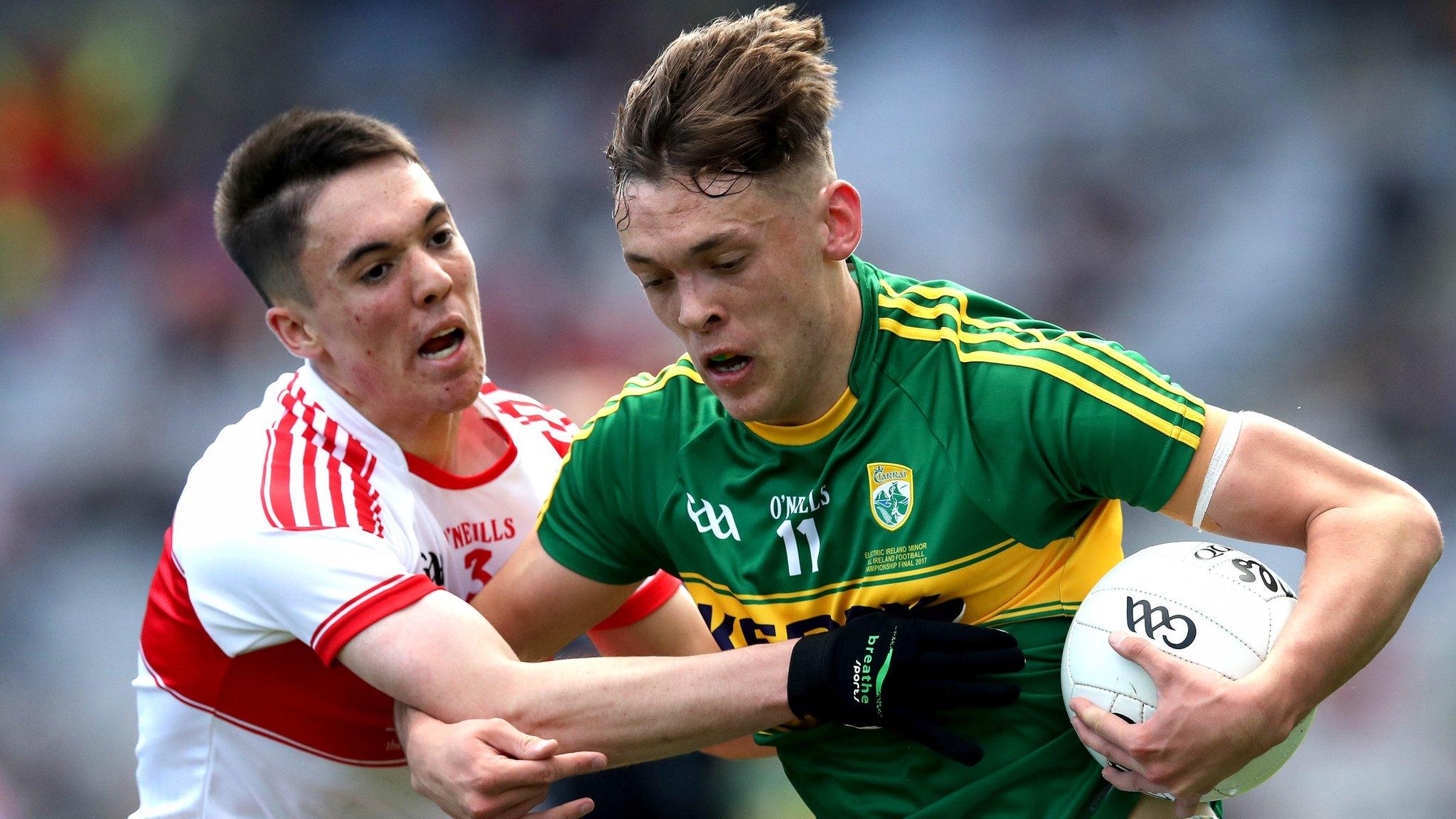GAA should follow BBC streaming example - senator
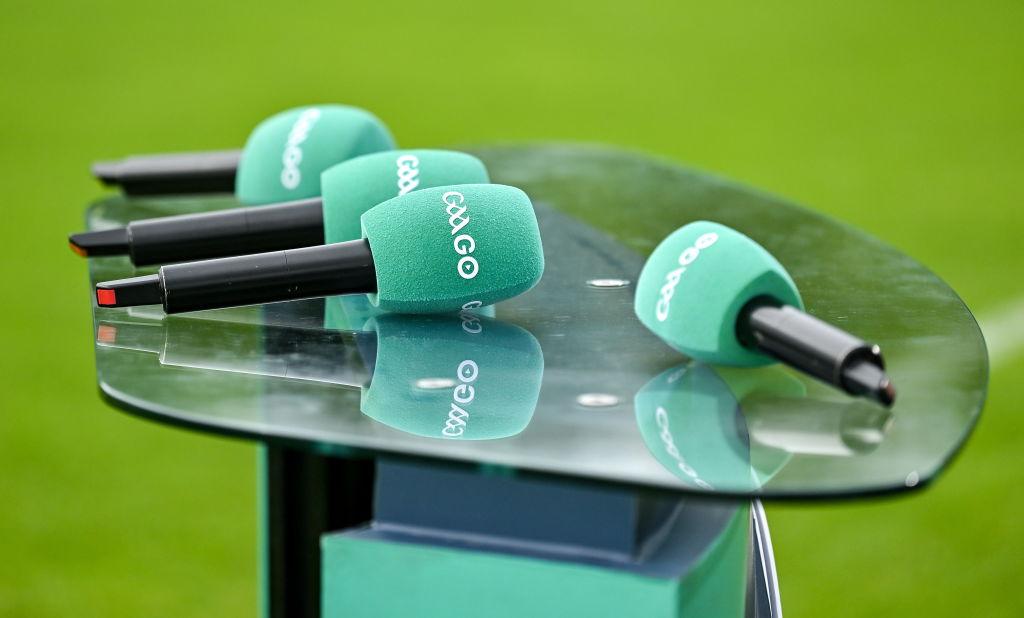
GAAGO is a commercial streaming service jointly owned and operated by RTÉ and the GAA
At a glance
The Gaelic Athletic Association (GAA) and RTÉ should look at how the BBC screens major sporting events, according to an Irish senator
Niall Ó Donnghaile was among the politicians to question representatives of the GAA and RTÉ at an Irish parliamentary committee
Questioning was dominated by GAAGO, the subscription streaming service to watch some GAA matches
Members of the committee asked why the public should pay extra to watch certain games
- Published
The Gaelic Athletic Association (GAA) should look at how the BBC screens big sporting and other events when it comes to making games available.
That is according to the Sinn Féin senator Niall Ó Donnghaile.
Mr Ó Donnghaile was among a number of TDs and Senators (Irish parliamentarians) who questioned representatives from the GAA and RTÉ on Wednesday at an Oireachtas (Irish parliamentary) media committee.
Many of the questions were directed towards the GAA and the Irish public service broadcaster about the GAAGO streaming service, which hosts some GAA games.
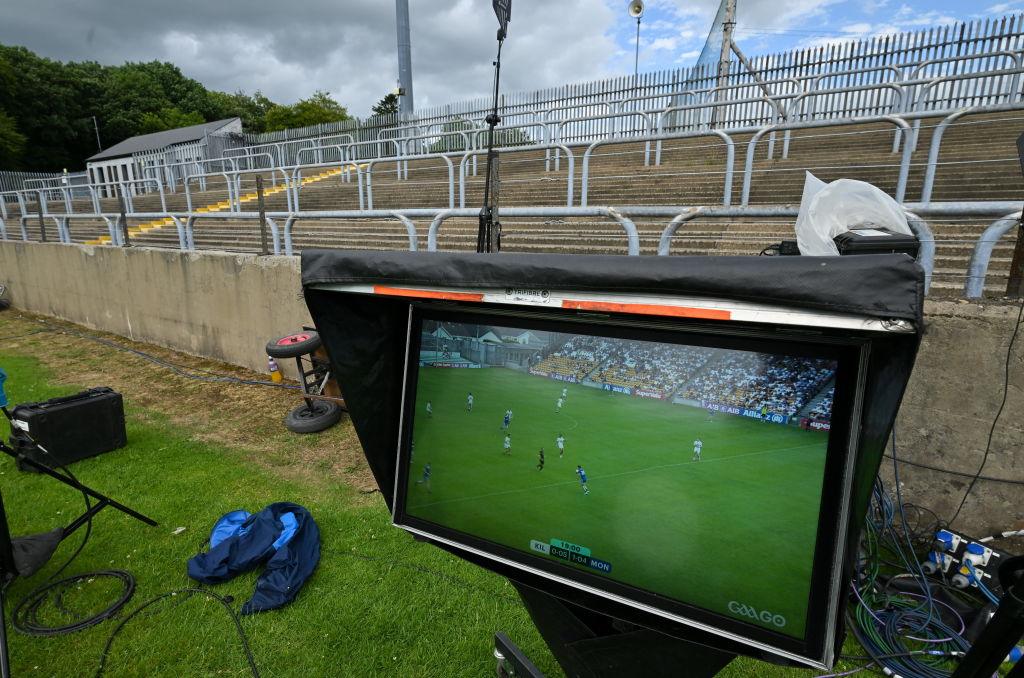
GAAGO subscribers can watch certain sports matches
It is jointly owned by the GAA and RTÉ.
Subscribers pay an annual fee beginning at €79 (£69) a year to watch matches on GAAGO.
Other GAA games are shown free-to-air on RTÉ and some matches are also shown on the Irish-language channel TG4.
BBC Northern Ireland broadcasts a number of GAA games free-to-air on TV and on the iPlayer.
Niall Ó Donnghaile asked if was appropriate that audiences in Ireland had to "pay an additional charge on top of their licence fee".
Senator Ó Donnghaile compared how the BBC made big sporting and other events available to viewers.
"I obviously pay my licence fee in the North, so for example if I want to watch Wimbledon, if I want to watch multiple courts I can press a button and do that," he said.
"If I'm watching Glastonbury and I want to watch multiple stages I can do that. If I want to watch a particular game that BBC NI have the rights for I can press the red button and watch it free of charge.
"Well not free, at the cost of the licence," he continued.
"So is that not a model that the GAA needs to look at in the future?" he asked.
"One that is certainly beyond simply TV broadcasting but it is far more accessible and reachable for viewers."
In repsonse the GAA's Director General Tom Ryan said: "It may well be, it may well be.
"We are here to look at the thing from a solutions perspective."
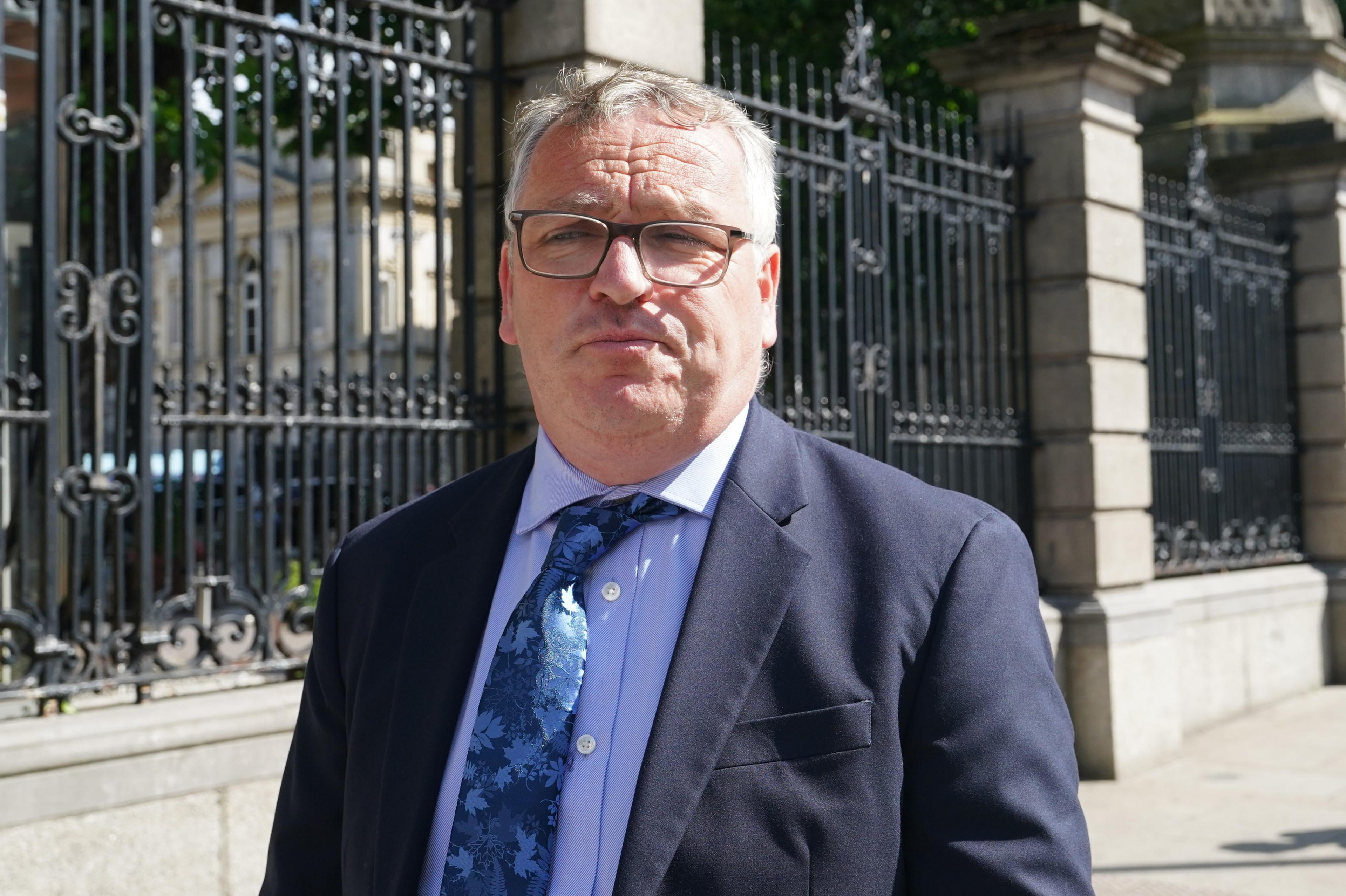
Declan McBennett, RTÉ head of sport, appeared at the committee
'Ripe for a kicking'
Former RTÉ director general Dee Forbes was on the board of directors of GAAGO along with the RTÉ Head of Sport Declan McBennett.
Ms Forbes resigned as RTÉ director general due to the controversy over undisclosed payments to presenter Ryan Tubridy.
During his evidence at Wednesday's committee, Mr McBennett said he had "not received one cent, one penny, one Euro or one pound" for his role as a director of GAAGO.
"There have been a lot of RTÉ people in here lately, and RTÉ has been ripe for a kicking," he said.
"I'm in RTÉ 24 years and I'm very proud of what RTÉ does, I'm very proud of its place in Irish society."
Questioning Mr McBennett, the Sinn Féin TD Chris Andrews asked if RTÉ were "using GAAGO to double charge the public for broadcasting what should be available as a result of paying your licence?"
But Mr McBennett replied that charge "did not stand up to rigorous scrutiny".
The Fine Gael TD Alan Dillon accused RTÉ of "acting in a cartel-like manner with the GAA".
"Are you not cherry-picking the top GAA clashes to drive profit and subscription?," Mr Dillon asked.
"No, absolutely not," Mr McBennett replied.
Mr McBennett later told Labour Senator Marie Sherlock that the "access question is the key critical question for GAAGO going into the future".
"If you've good broadband you've a very good experience of GAAGO, if you don't have good broadband then you don't have a good experience," he said.
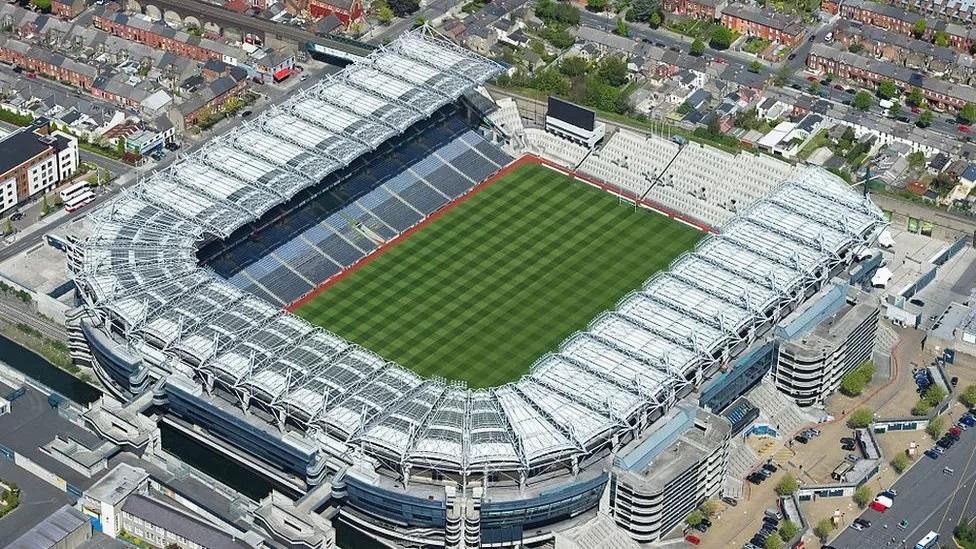
The GAA is headquartered at Dublin's Croke Park Stadium
Tom Ryan told the committee that "people no longer watch television in the same way and sport is perhaps the last bastion of appointment viewing".
He said that GAAGO was launched as a joint venture with RTÉ "in order to produce our own content to address niche markets via streaming".
Mr Ryan said showing every game "became the norm" during the Covid pandemic as people could not go to games and streaming became a way of meeting demand.
He said that while rights to live games had been assigned to GAAGO in 2022, "the number of free-to-air games on TV is actually higher than ever before".
"Those games that are on GAAGO would previously either have been on Sky TV or probably not shown at all," Mr Ryan said.
He also told the committee that the GAA earned around £4m a year from GAAGO, and overall around 22% of the its annual income came from the rights to broadcast games.
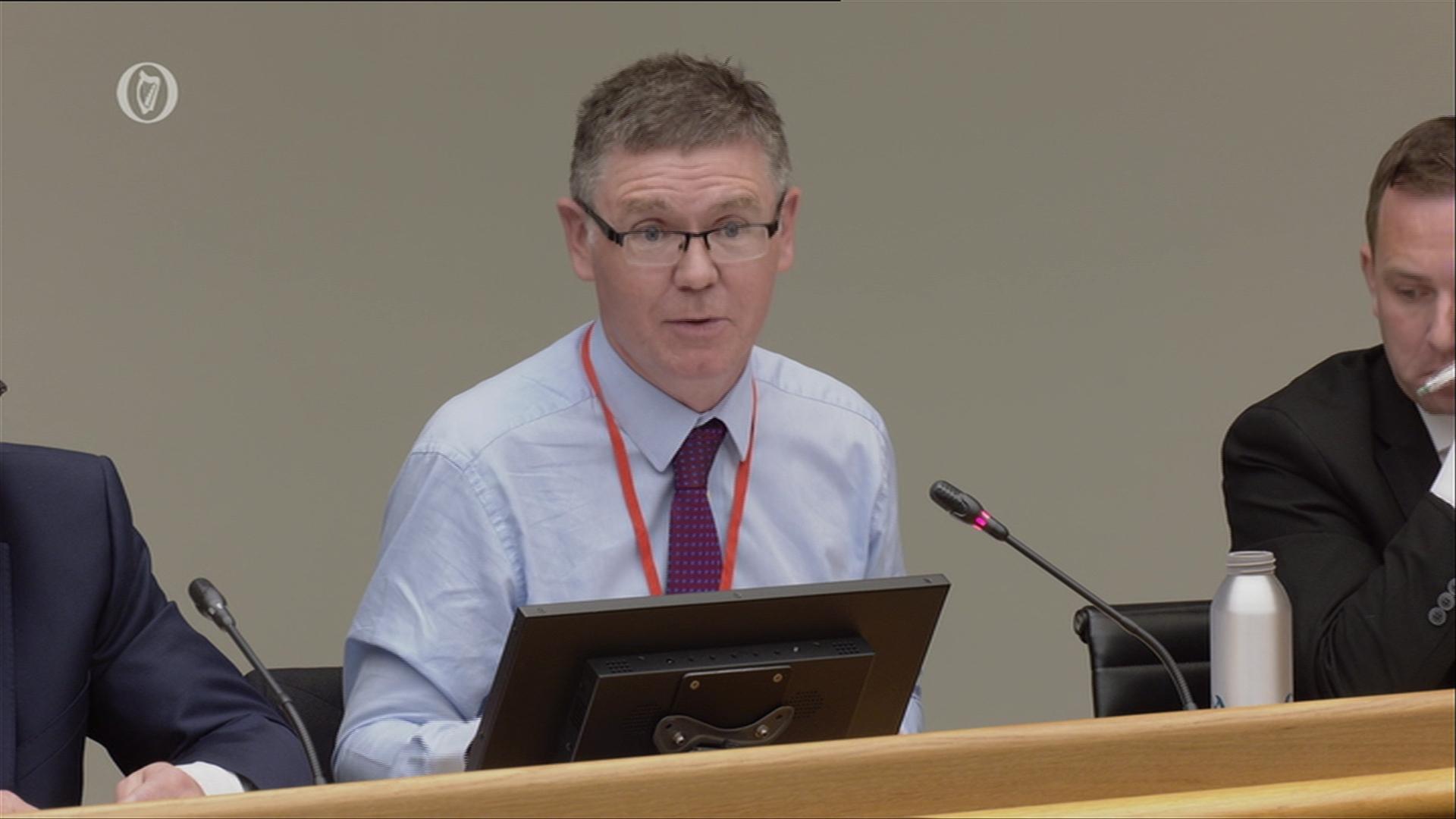
The GAA's director general, Tom Ryan, was questioned by the media committee on Wednesday
A number of TDs asked Mr Ryan how it was decided which games were selected for streaming on GAAGO rather than being shown on RTÉ.
The Fianna Fáil TD Christopher O'Sullivan said that how GAA games were shown had created "heated public sentiment".
The independent TD Mattie McGrath told Mr Ryan that "several high-profile GAA games have been put behind this paywall and there was consternation as you know".
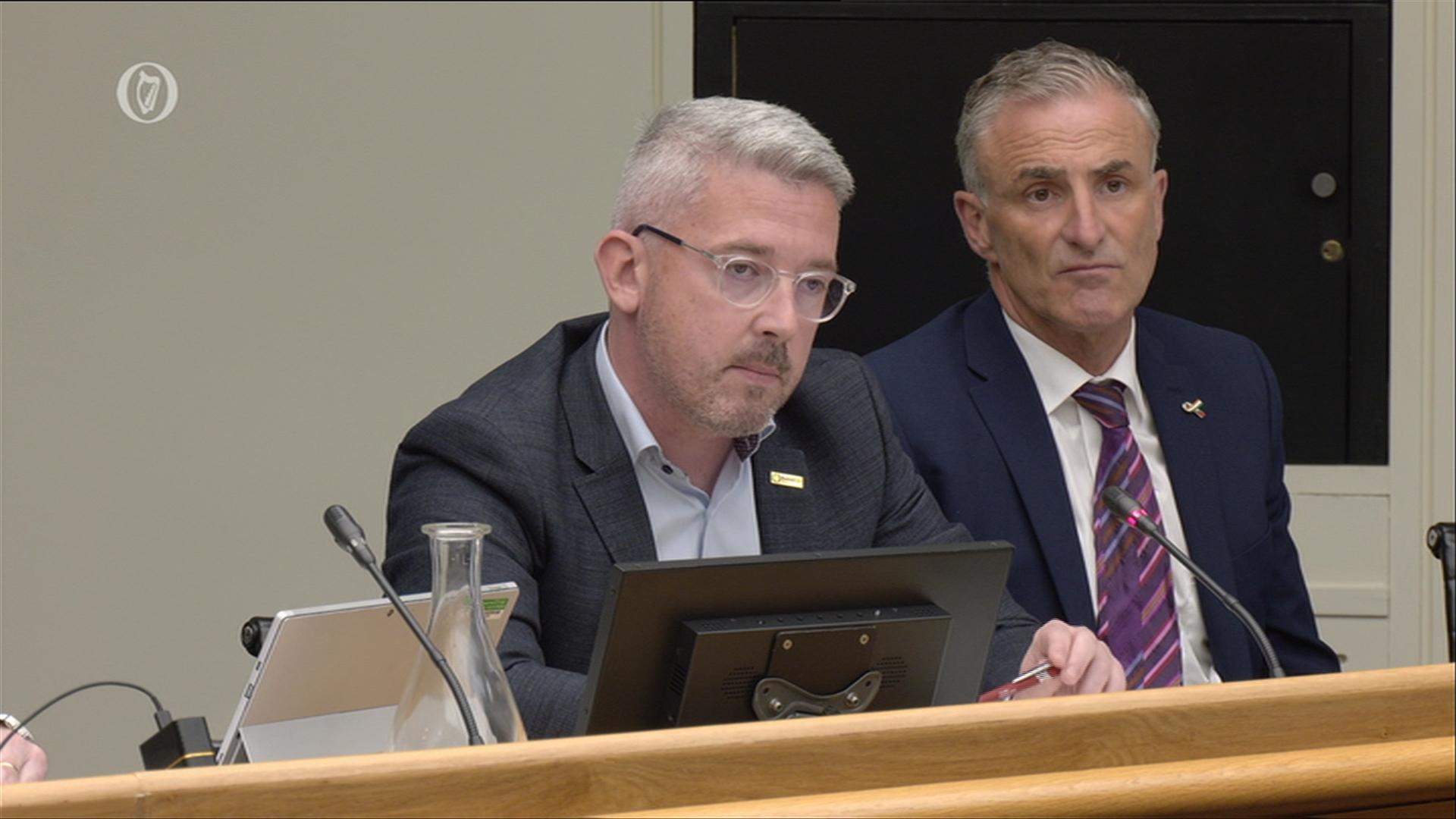
Senator Ó Donnghaile (left) compared how the BBC made big sporting events available to viewers.
Senator Ó Donnghaile also asked why people in Northern Ireland were often prevented from watching Irish football teams on TV if games were broadcast on RTÉ.
His Sinn Féin colleague Imelda Munster TD later said that was "a bone of contention understandably for people up North".
Related topics
- Attribution
- Published11 July 2023
